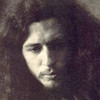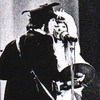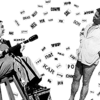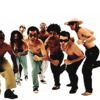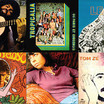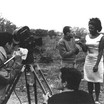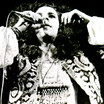Ilumencarnados seres

chico buarque
Testimonials
At the time of tropicalism — I have talked about this many times — I was learning music. That’s when I got to know Tom, I mean, that’s when I met him personally and started working with him, writing lyrics for him and learning more about the complexity of his work. I began to study music and Tom showed me the way, so to speak. He went to Lapa with me and helped me buy a piano, my first piano. I got interested in music around 67, 68, exactly when Tropicalism made its appearance. Therefore, I wasn’t into breaking up with anything. Tropicalism was breaking from bossa nova, among other things, and I wasn’t interested in breaking from bossa nova. Quite the contrary, I was composing with Tom, who was my mentor. I wanted to learn so many new things and I thought I had already wasted too much time; I thought I wasn’t making as much progress as I should musically and that I needed to perfect myself as a musician, to improve as a musician– which I did indeed. That’s what I was worried about.
I used to hang out with Gil and Caetano here in Rio, for a time we met quite often, but after a while, I stopped seeing them. And when I saw them again, the movement was already going on. Gil says he called me over to a few meetings. He says I went and I got drunk; I don’t remember exactly. It may very well be (laughs). But I wasn’t all that concerned. Maybe I lacked a bit of ambition, the ambition to pay more attention to all that movement. The very idea that thirty years later I’d be talking about it would seem an absurd to me. Because I was almost like a child playing at making music, and the tropicalist movement already gave itself a historic role, which, as a matter of fact, they really had in the end. I was on the outside of all that, and when I came to understand it, the whole thing was already happening. I got to know Tropicalism when it was already all set onstage. I had a great relationship with the people involved, and that relationship didn’t end because of my distance from the movement. But I do think that, at a certain point, the press, particularly the São Paulo press, which greatly supported the tropicalist movement, needed to create an opposing force. I mean, it was like when they needed to go after Noel Rosa when bossa nova was being created, there was the need to break up with the past, and the past for Tropicalism, as a matter of fact, that past was me (laughs). So, for some time to come things stayed like that. I became the adversary of that movement. But I didn’t feel at all like an adversary of Tropicalism. I had no objections to what they were doing. Maybe I liked this song and didn’t like that song, I might prefer what they did before to what they were doing then, but I had no ideological objections to them. Nothing of the sort. Except that, somehow, I was affected by the violence with which the movement around Tropicalism hit me. And it hit Tom and Vinícius too, but because I was a little younger, I was in the position of being the most visible adversary to the tropicalist movement. And Tom had already made a life for himself in the USA, the whole bossa nova gang was gone, Carlos Lyra was living abroad, João Gilberto was abroad. They let go of it a little bit and, between 1964 and 1970, things were left somewhat in the hands of my generation. Here in Brazil, those who weren’t in Tropicalism were automatically classified as an enemy: so, Edu Lobo and I were the adversaries of Tropicalism. But I never felt that, not even during it, except for personal matters, I never felt that there might be some personal resentment, some hurt. Aside from that, which is completely irrelevant today, I had no objections to Tropicalism and I have none today. Actually, I think that what happened was what had to happen anyway. It was necessary.
Extract of MPB em discussão. Santuza Naves, Frederico Oliveira Coelho and Tatiana Bacal. Belo Horizonte, UFMG, 2005.





